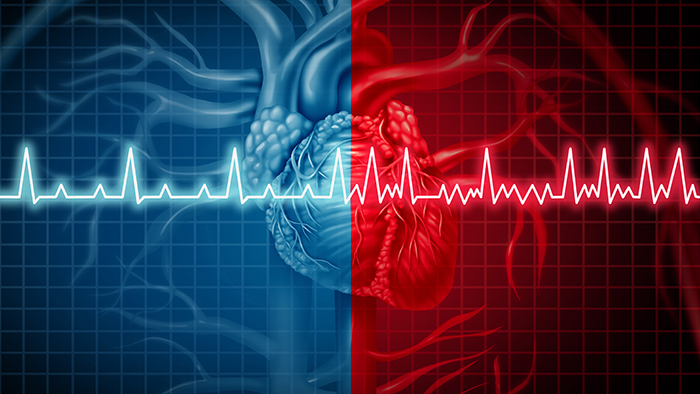September is AFib Awareness Month
September 11, 2025
September marks National Atrial Fibrillation (AFib) Awareness Month, an important opportunity to recognize the signs and symptoms of this common but potentially dangerous heart condition.
AFib is the most common type of heart arrhythmia, affecting millions of Americans. It occurs when the heart beats irregularly, disrupting the flow of blood between the upper and lower chambers. Left untreated, AFib can lead to stroke or heart failure.
Common symptoms of AFib:
“AFib symptoms aren’t always obvious, and they can develop gradually, which is why it’s so important to stay in tune with your body and keep up with regular checkups,” said Dr. Ziad Issa, Executive Medical Director at Prairie Cardiovascular. “Even small or subtle changes could point to something more serious.”
Treatment options:
“While we can’t always prevent AFib, early detection and treatment can go a long way in reducing the risk of stroke or heart failure,” Dr. Issa added.
The experts at Prairie Cardiovascular and HSHS hospitals throughout Illinois use advanced technology and a personalized approach to help patients manage AFib and maintain heart health.
If you're experiencing symptoms or have concerns about your heart, don’t wait to seek care. During AFib Awareness Month, take the opportunity to learn more and act now.
AFib services are available at the following locations:
To learn more or schedule an appointment, visit HSHS.org/Heart.
AFib is the most common type of heart arrhythmia, affecting millions of Americans. It occurs when the heart beats irregularly, disrupting the flow of blood between the upper and lower chambers. Left untreated, AFib can lead to stroke or heart failure.
Common symptoms of AFib:
- Heart palpitations
- Chest pain or pressure
- Fatigue or weakness
- Dizziness or lightheadedness
- Shortness of breath
“AFib symptoms aren’t always obvious, and they can develop gradually, which is why it’s so important to stay in tune with your body and keep up with regular checkups,” said Dr. Ziad Issa, Executive Medical Director at Prairie Cardiovascular. “Even small or subtle changes could point to something more serious.”
Treatment options:
- Lifestyle changes such as diet and exercise
- Medications to regulate heart rate or rhythm
- Electrical cardioversion (a controlled shock to restore normal rhythm)
- Cardiac ablation procedures that target abnormal electrical signals
- FARAPULSE™ Pulsed Field Ablation, a non-thermal and innovative treatment option
“While we can’t always prevent AFib, early detection and treatment can go a long way in reducing the risk of stroke or heart failure,” Dr. Issa added.
The experts at Prairie Cardiovascular and HSHS hospitals throughout Illinois use advanced technology and a personalized approach to help patients manage AFib and maintain heart health.
If you're experiencing symptoms or have concerns about your heart, don’t wait to seek care. During AFib Awareness Month, take the opportunity to learn more and act now.
AFib services are available at the following locations:
- Carbondale – Prairie Cardiovascular
- Decatur – HSHS St. Mary’s Hospital
- Effingham – HSHS St. Anthony’s Memorial Hospital
- O’Fallon – HSHS St. Elizabeth’s Hospital (FARAPULSE™)
- Springfield – HSHS St. John’s Hospital (FARAPULSE™)
To learn more or schedule an appointment, visit HSHS.org/Heart.
